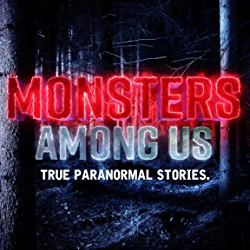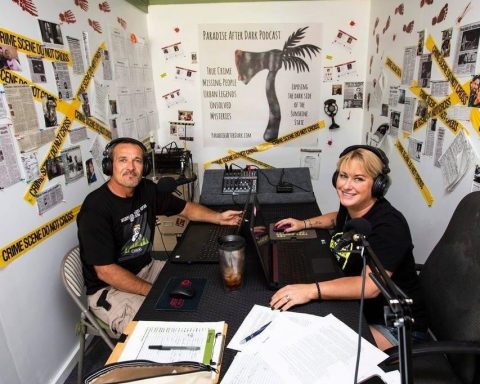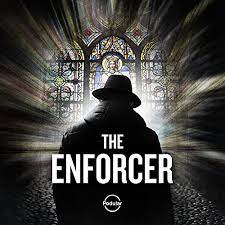Last month, in Part Two of our four-part series with our true-crime panel, we left you with a bit of a cliffhanger. Our conversation around the “How Do You Podcast?” question led us to an even deeper discussion about the emotional and psychological aspects of producing a true-crime show—and that’s what this month’s article is all about.
As a reminder, here are our panelists:
Margot, host of Military Murder
Lori, host of The Unlovely Truth
Anna-Sigga, cohost of Anatomy of Murder
Kenzi and Holly, cohosts of Crimeaholics
Jake, cohost of Strictly Stalking
If you’re a fan of true crime, you’ve likely experienced a point when listening to a story simply became too much—too graphic, too intense, and/or too disturbing.
When this happens, what do you do?
While it doesn’t happen often to me, sometimes, I just have to turn it off. I remember listening to a true-crime podcast I was considering covering for Podcast Magazine® while walking in my neighborhood late last year. I usually listen at least until I reach my destination. On this particular day, though, I was at least five blocks from finishing my little jaunt when I decided I was done.
Keep in mind that it wasn’t a reflection of the quality of this particular podcast. The host was doing a tremendous job recounting the story. But the storytelling was so detailed, it was also very disturbing. Now, as an avid true-crime fan, “disturbing” isn’t all that new to me. So for me to have to turn something off, it has to be pretty disconcerting. (And I did feature that podcast positively in our Under the Radar column in the past, because again, it’s extremely well-produced.)
Truth be told, the fact that you can become overwhelmed by certain cases was one of the reasons I asked to cover the Comedy Category for Podcast Magazine, as well. I needed another task that would, in essence, force me to do something else—like listen to something practically opposite of true crime.
The reality is, after more than two years of covering true crime, I was beginning to think that the world was actually evil with only smatterings of good, rather than the other way around. This was pretty profound, considering the fact that even my police officer friends don’t feel that way. And most, if not all, of them have witnessed much more horrific scenes in their careers than I will ever listen to in my lifetime.
This all begs some questions: If simply listening to a number of crime stories can psychologically and emotionally affect an audience, what might producing and/or hosting a true-crime podcast do to an individual? How do they handle listening to hundreds of 9-1-1 calls? Looking at crime-scene pictures? Watching police body-cam footage? Talking to victims and victims’ families? And so much more?
Diving into the psychological and emotional aspects of producing or hosting a true-crime podcast wasn’t part of my original plan when I brought the panel together. But the natural course of our dynamic and insightful conversation took us there. So, we stayed in the deep end of that pool for a while.
If you read last month’s feature, you may remember that we left off with Kenzie’s admittance that she doesn’t listen to podcasts much anymore. Her reasoning is what initiated the conversation around the psychological aspects of covering true crime.
“The work we do in true crime takes a lot, mentally,” she revealed. “That’s a big part of why I stopped listening to most true crime. I get connected to this stuff on another level, because as the host of Crimeaholics, I work closely with the families of victims. I usually talk with them for hours, and by the time the story is done, I’m not okay mentally or emotionally… at all! I’ve actually stopped watching most true-crime TV shows as well as reading true-crime books, too. Doing the work for a true-crime podcast takes its toll—being immersed in it as much as we are is mentally and emotionally draining. This is something Holly and I have both experienced and talked about. I just need to be able to separate myself from it. It’s been a long time since I’ve actually listened to a true-crime podcast [for entertainment].”
Jake, host of Strictly Stalking, took the opportunity to ask Kenzie and Holly a question, at that point: “Do you feel that, because you are victims’ advocates as well as podcasters, that it has a more significant impact on how you view podcasting?”
“Holly and I have this conversation almost daily now,” Kenzie answered.
“It’s a really good point,” Holly added. “Being an advocate, you definitely connect on a deeper level. I don’t look at [true-crime podcasts] as entertainment anymore. It’s no longer just background noise. I have such a heart for what I’m doing, and I know there’s a reason and a purpose for it. Just this morning, I got a text from a family member of a missing woman. I am much more invested on a personal level.”
Jake agreed, adding, “I find that most people who go into true crime experience a shift in perspective—once you dive in, you realize it’s not just entertainment. I think you personalize and humanize the people you work with rather than simply covering the case.” Referring to the stalking victims he features on Strictly Stalking, he said, “I would never think lightly of these situations.
“But I definitely went into it with a much lighter approach. Once you hear the stories firsthand about what victims actually go through and really take it in, there’s a sort of potency in the reality of it. It’s almost like waking up a part of your human nature. Then, you still have to get in front of the mic to share it.”
“I totally agree,” chimed in Kenzie. “When you work with the families and the victims themselves, you really get a whole different sense of it.”
Kenzi related a story they shared on Crimeaholics that speaks to the emotion of producing a true-crime podcast:
“The very first episode Holly and I ever did was an extremely touchy case. It was about a domestic violence situation. The victim was murdered in a very gruesome way. My family was actually connected to the victim, too.”
A month after publishing that episode, Kenzie and Holly took it down.
“After we started working with the victims and their families, there was much banter about the way we handled that episode,” Kenzie confessed. “I was embarrassed, so I re-recorded it about six months later. Even though we weren’t personally mocking the victim or their situation, I felt like we handled it extremely inappropriately. When I was listening to other true-crime podcasts, I would sometimes really struggle with the hosts’ banter and joking back and forth. Maybe it’s mean of me to say, but I just don’t like it.”
Kenzie did what she thought was right in making amends for the original episode. In the re-recorded segment, she said, “I apologized to the family. We handled that very inappropriately. Once you really get that involved in your true-crime podcast, everything changes.”
Lori, from The Unlovely Truth, is also fully aware of the emotional aspect of covering a case not only from a podcasting perspective, but also as a private investigator. She shared a particularly emotional story from her experience with us, too:
“I will never forget a woman I once worked with. She’d lost her son, and she said, ‘I thought this would be really, really hard, and it has been, going through the process. But even while people are talking about my son’s death, it’s like he’s still here with me.’ I’ve never forgotten that. I always strive to be so respectful… not just to the victims, but to the loved ones who are still trying to get answers or some form of justice for them.”
Another of our panelists who knows all too well the emotional and psychological aspects of covering true crime from multiple perspectives is former prosecutor Anna-Sigga, co-host of Anatomy of Murder.
“I have always been involved in the world of true crime. Before podcasting, it was my career. It is heavy material. Which is why laughter is so important to prosecutors and members of law enforcement. It certainly doesn’t come from an uncaring place. It’s simply a release. It’s not to make light of the actual facts, but a method of letting go of what happens inside you. There is a need for mental well-being in true-crime professions. Prosecutors, law enforcement, victim’s advocates, podcasters… anyone working within this space grapples with the dark parts of humanity.”
Anna-Sigga chimed in on the healing effect of laughter and the psychological benefits it can bring to those in the true-crime space:
“I’ve always told colleagues, ‘Tell me a joke.’ I need that. I thirst for it. After the joke, I’m going to dive back into working on the most diabolical, gruesome, horrendous cases. It’s even more difficult if you can’t compartmentalize. I truly think that comedy and laughter is necessary.”
Despite the importance Anna-Sigga places on laughter—a defense mechanism many first responders use, as well—she is also as keenly aware of victims’ families as our other true-crime panelists.
“I always assume that a victim’s loved ones or family members are listening [to the podcast]. Maybe they really aren’t, but I want to ensure they can without my having to hang my head for even one moment. That isn’t to say that I don’t remain honest with myself and my listeners in terms of how I see things. Sometimes, a loved one may disagree with what I say or the way that I say it. Not everyone looks at things the same way. Still, I’ll always show respect to the families living through a tragedy.”
Margot, from Military Murder, brought closure to this particular portion of our conversation by sharing how she endeavors to connect with her audience in a special way:
“I podcast like I’m telling a friend a story in a way she’s never heard before. Maybe she’s heard some facts around a case, but she doesn’t know everything. Sometimes, there’s just not enough information out there… so that’s what I aim to share.”
Margot’s comments align with her fellow legal-professional colleague, Anna-Sigga’s, about the “fascination for the facts.”
But more on that in Part Four, when we wrap up this series next month.
In the meantime, let’s close with this:
I remember a discussion I had a few years ago with a former 9-1-1 operator. He talked about the concept of “empathy fatigue.” In essence, it refers to the idea that after hearing so many horrendous acts and aspects of crime, a person will sometimes self-protect by ceasing to care. I suppose this could happen to a true-crime podcaster, as well.
However, this clearly isn’t the case with our panelists, nor with most, if not all, of the podcasters I’ve featured in the True Crime category over the past two years plus.
Anyone who takes their craft seriously—in this case, the craft of producing a quality true-crime podcast—is prone to the emotional and psychological effects of telling these stories properly. Those who are passionate about their work and smart enough to produce a show of the caliber of these panelists’ are bound to experience the personal toll it takes on them, eventually. Some realize it and handle it with laughter. Some just stay away from other true-crime shows. But all take solace in the service they are providing to society. More on that next time.
April 2022 Issue













